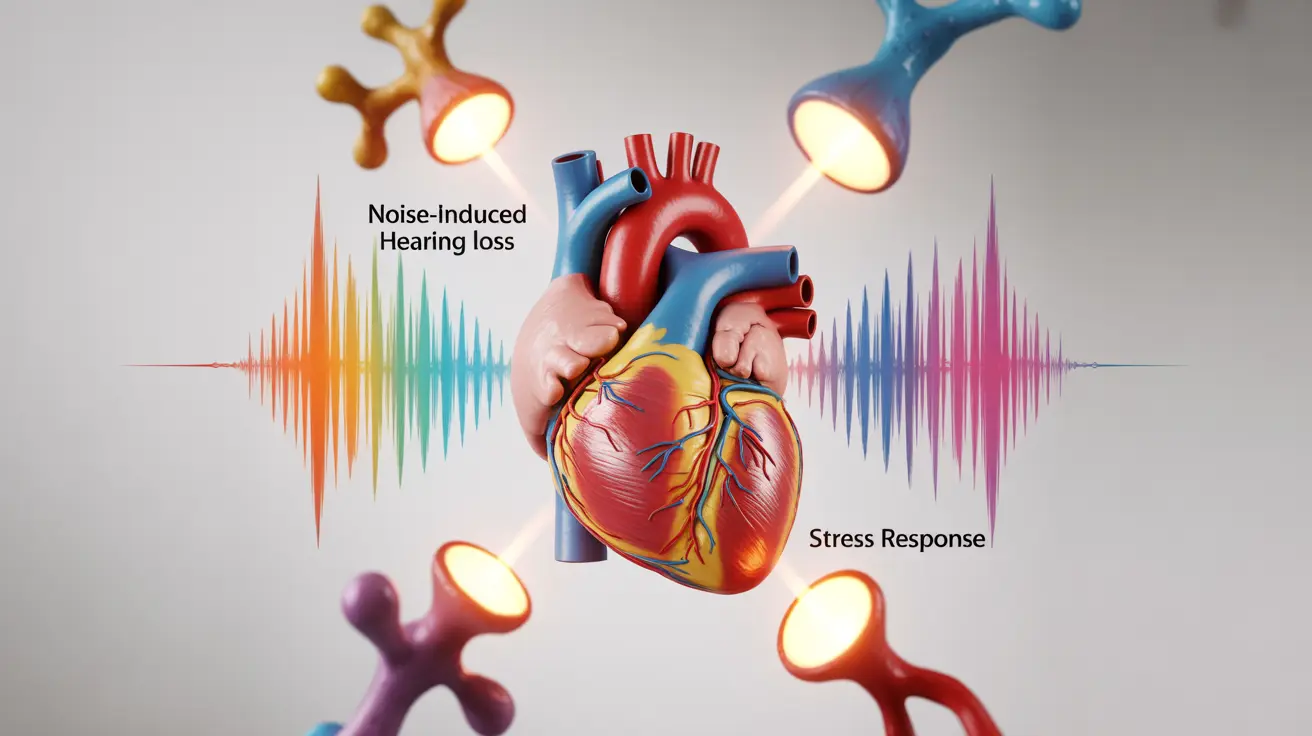Have you ever felt your heart skip a beat during a sudden loud noise? The connection between loud noises and heart palpitations is more significant than many people realize. Recent research has revealed that exposure to loud sounds can trigger various cardiovascular responses, including irregular heartbeats and other cardiac concerns.
Understanding this relationship is crucial for protecting your heart health, especially if you live in noisy urban environments or work in high-noise settings. Let's explore how loud noises affect your heart and what you can do to protect yourself.
How Loud Noises Impact Your Heart
When exposed to loud noises, your body initiates a stress response that can directly affect your cardiovascular system. This reaction triggers the release of stress hormones like adrenaline and cortisol, which can lead to immediate changes in heart rhythm and blood pressure.
The impact can range from temporary heart palpitations to more serious cardiac issues, particularly with prolonged exposure. Your nervous system responds to loud sounds as potential threats, potentially disrupting normal heart function.
Understanding Heart Palpitations from Noise
Heart palpitations caused by loud noises typically manifest as:
- Feeling of skipped heartbeats
- Rapid heart rate
- Fluttering sensations in the chest
- Heart racing or pounding
- Irregular rhythm sensations
The Science Behind Noise-Induced Cardiac Effects
Research indicates that exposure to loud noises can affect your heart through multiple mechanisms. The acoustic stress triggers your body's fight-or-flight response, leading to increased blood pressure and heart rate variability. This response can be particularly pronounced in individuals with pre-existing heart conditions.
Long-term Health Implications
Chronic exposure to loud environmental noise has been associated with:
- Increased risk of atrial fibrillation
- Higher blood pressure levels
- Greater stress on the cardiovascular system
- Enhanced risk of heart disease
- Sleep disruption affecting heart health
Protecting Your Heart from Noise Exposure
Taking proactive steps to protect yourself from harmful noise levels is essential for heart health. Consider implementing these protective measures:
- Use appropriate hearing protection in loud environments
- Create quiet zones in your living space
- Take regular breaks from noisy environments
- Monitor noise levels in your workplace
- Invest in noise-canceling technology when appropriate
Frequently Asked Questions
Can loud noises cause heart palpitations or irregular heartbeats? Yes, loud noises can trigger heart palpitations and irregular heartbeats through the body's stress response system. The sudden acoustic stress can cause your heart to temporarily beat faster or irregularly as part of the fight-or-flight response.
How does exposure to loud noise increase the risk of heart rhythm problems like atrial fibrillation? Loud noise exposure triggers stress hormones and activates the sympathetic nervous system, which can lead to changes in heart rhythm. Chronic exposure may contribute to electrical instability in the heart, potentially increasing the risk of conditions like atrial fibrillation.
What symptoms should I watch for if loud noises are affecting my heart health? Key symptoms include irregular heartbeats, chest fluttering, unexplained racing heart, dizziness, and shortness of breath when exposed to loud noises. If you experience these symptoms, consult a healthcare provider.
Who is most at risk of heart problems triggered by loud noise exposure? Individuals with pre-existing heart conditions, older adults, those with anxiety disorders, and people regularly exposed to high noise levels (such as industrial workers or urban residents) are at higher risk.
What steps can I take to protect my heart from the effects of loud environmental noise? Protect yourself by using ear protection, limiting exposure to loud environments, creating quiet spaces at home, taking regular breaks from noise, and working with your employer to implement noise control measures in the workplace.




